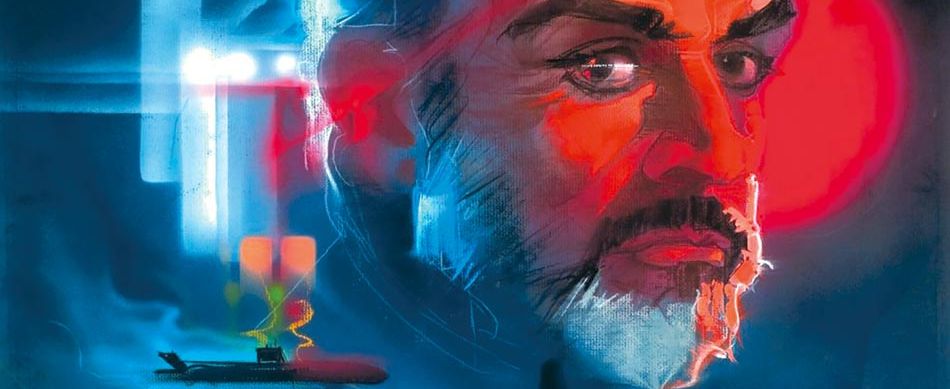I MUST confess that I have always loved spy films and novels. I’m a great fan of James Bond films, and Tom Clancy is one of my favorite authors. Needless to say, I regard the film The Hunt of Red October, adapted from Clancy’s novel of the same name, as a real work of art, not only because of John McTiermann’s masterly direction, but above all because of Sean Connery’s superb interpretation of the Russian submarine’s captain, Marko Ramius.
In the movie CIA analyst Jack Ryan (Alec Baldwin) tries to convey the extremely perilous nature of the Soviet Navy’s newest and most advanced nuclear missile submarine Red October with the words, “This thing could park two hundred warheads off New York or Washington and nobody’d suspect a thing till it was all over.”
Thirty years have passed since that film, and 36 since the publication of Clancy’s novel, and the Cold War between the USA and the USSR is becoming a faint memory. Unfortunately, that submarine is no longer a work of pure imagination like it was 30 years ago, it is now a reality!
Some months ago Russian President Vladimir Putin inaugurated, with great pride, the world’s longest submarine, called Belgorod. Designed to support a variety of military missions, the six-hundred-foot long submarine displaces more water than a World War I battleship and can dive to a depth of 1700 feet. However, the truly awful thing about this monstrous war machine is that it is designed to carry a series of nuclear-armed Poseidon drones, a doomsday weapon capable of wiping out entire cities by triggering a devastating tsunami.
I’m not an armaments expert, but if I’ve understood correctly, a reckless President of Russia could issue the ghastly order to attack the West, and then Belgorod would leave Russian territorial waters and be able to approach US coastal waters in less than 36 hours. That is still a long time compared to nuclear missiles, but the worrying fact is that this monster submarine would be able to approach the US undisturbed and undetected by all the satellite warning systems currently in place. This way Belgorod would be able to fulfill its deadly mission “till it was all over.”
In the film The Hunt of Red October, after a series of sensational turn of events, all ends for the best because the Russian submarine’s captain is after all a good guy, and therefore he heroically resolves the situation for the good of humanity. Instead, the consequences of this new war machine on the international chessboard are much harder to evaluate.
In the meantime, as in the best Cold War films, the US has begun its own counter-offensive by investing huge sums of money to the development of the XLUUV (XL Unmanned Underwater Vehicle), President Trump’s response to Putin’s Belgorod and its Poseidon drones.
Let us thank God that we have a Pope who is not afraid to confront the evils of the world. Last November, during his visit to Japan, Pope Francis denounced any use of atomic weapons as “a crime not only against the dignity of human beings, but against any possible future of our common home.” He then added, “The arms race wastes precious resources that could be better used to benefit the integral development of peoples and to protect the natural environment. In a world where millions of children and families live in inhumane conditions, the money that is squandered and the fortunes made through the manufacture, upgrading and maintenance and sale of ever more destructive weapons are an affront crying out to heaven.”
Furthermore, speaking to reporters abroad the plane returning to Rome after his Asian trip, Pope Francis said, “The use of nuclear weapons is immoral, which is why it must be added to the Catechism of the Catholic Church. Not only the use, but also the possession of them.”
The desire for peace, safety and serenity dwells in the heart of every human being, but these gifts surely cannot be guaranteed by nuclear weapons. Unfortunately, however, after decades of high-level talks, the question, Can the world exist without nuclear weapons? is still without an answer, and with this climate of tension, which appears to be increasing day by day throughout the world, it appears that the answer to this vital question will elude us for much longer.
What can we, ordinary citizens of the world, do? Something very important and very effective; we can use an unconventional weapon of great power: prayer.




